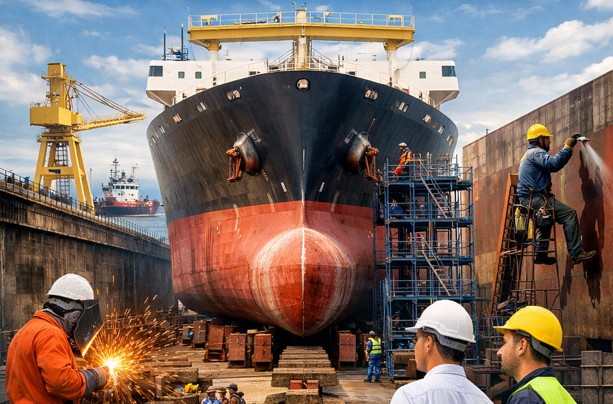
Freight Forwarder and Shipping Line: Key Players in Maritime Trade
In international trade, the freight forwarder and the shipping line play different yet highly complementary roles within the maritime logistics

The Port Master is the professional responsible for commanding small port vessels, ensuring compliance with all safety and operational regulations. Additionally, they may simultaneously serve as chief engineer, provided the vessel has the appropriate automation and its power does not exceed 375KW in a single engine or double that in two or more engines.
Their main functions include:
Ship management: Directing navigation and ensuring that routes and regulations are followed.
Supervision of loading and unloading: Ensuring proper weight distribution to maintain the ship’s stability.
Crew and passenger safety: Implementing safety protocols and acting in case of emergency.
Vessel maintenance: Supervising the condition of the engine, communication, and navigation systems.
Administrative management: Keeping necessary records for compliance with maritime regulations.
Importance of Training to Obtain the Port Master Title
To perform this role efficiently and safely, it is essential to have specific training that provides the necessary theoretical and practical knowledge. The training for obtaining the Port Master title is aimed at those who already hold the Basic Safety Training Certificate in Maritime Security and wish to expand their professional skills.
This course aims to prepare future port masters in the following areas:
1. Navigation and Maritime Safety Knowledge
2. Maritime Legislation and Regulations
3. Vessel Operation and Maintenance
Advantages of Obtaining the Port Master Title
Access to new job opportunities: Certification allows working on port vessels navigating up to 3 miles from port, expanding employment opportunities in the maritime sector.
Increased safety and professionalism: Training ensures that port masters are prepared to handle any emergency situation at sea.
Competitiveness in the industry: Holding this title adds value to a professional profile, increasing employment prospects and salary improvements.

In international trade, the freight forwarder and the shipping line play different yet highly complementary roles within the maritime logistics

A dry dock is a specially constructed facility used for the construction, inspection, repair, and maintenance of ships and vessels.